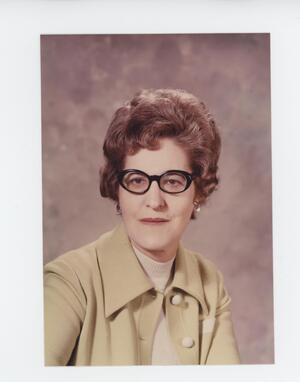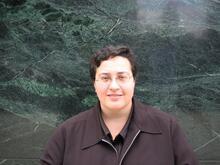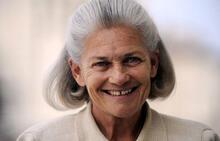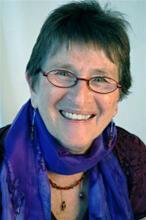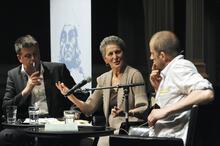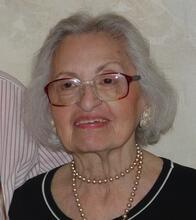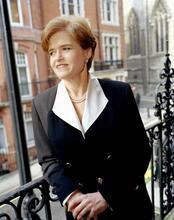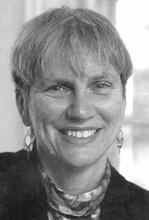May Brodbeck
May Brodbeck’s career in the sciences ran the gamut from teaching high school chemistry to exploring fundamental philosophical questions about the nature of human consciousness. After working on the Manhattan Project and teaching at the University of Minnesota, Brodbeck went on to the University of Iowa, where she served as professor of philosophy, vice president for academic affairs, and dean of the faculties. She was the first female administrator at that level outside of a women’s college. Brodbeck’s philosophy was notable for its inclusion of social sciences in the larger field of the philosophy of science and for her exploration of consciousness and the relationship between mind and body to determine what makes us human.
Article
May Brodbeck was among the foremost American-born philosophers of science. Regarding science as a search for truth and moral well-being, she devoted her life to exploring fundamental questions about individuals and society. Her anthology with Herbert Feigl, Readings in the Philosophy of Science (1953), was known throughout the world of philosophy. Her anthology Readings in the Philosophy of the Social Sciences (1968) became a benchmark in the field. A feminist, she was a prominent philosopher, teacher, and administrator who received many honors: she was a Fulbright scholar (1962–1963), president of the Western Division of the American Philosophical Association (1972–1973), and fellow at the Center for Advanced Study in the Behavioral Sciences (1981–1982).
Born in New Jersey on July 26, 1917, May was the first of two children. Her parents, Louis and Etta (Brager) Schachter, divorced when she was young. She grew up with the privations of the Great Depression, took a commercial course in high school, and worked to put herself through New York University at night, receiving a bachelor’s degree in chemistry in 1941. She married Arthur Brodbeck about this time, but they divorced in 1949. She taught high school chemistry and later participated in the Manhattan Project for development of the atomic bomb during World War II. She attended graduate school at the University of Iowa. There, under Gustav Bergmann, she took her master’s degree (1945) and her doctorate (1947) in philosophy. She then taught philosophy at the University of Minnesota, chairing the department of philosophy from 1967 to 1970. She was dean of the graduate school at the University of Minnesota from 1972 to 1974 and then returned to the University of Iowa as Carver Professor of Philosophy and vice president for academic affairs and dean of the faculties. At this time, outside of exclusively women’s colleges, this was the highest position attained by a woman in the academic world. Among her achievements at the University of Iowa were creating the Council on the Status of Women and founding one of the first women’s studies programs in America. She left administration in 1981 and retired in 1983. The University of Iowa has established a chair in liberal arts in her name.
Brodbeck’s early writings concentrate on questions of scientific method and the logic of scientific explanation. She defended a conception of science as a rigorous, objective enterprise whose scope includes the human as well as the natural sciences. Her later writings examine the complex relations between mind and body, developing an idea of parallelism that rejects any simple reduction of the mental to the physical as well as any simple division of the two into separate domains. Her discussions of human nature are free of ideology and focus instead on consciousness and complex biological structure to differentiate human beings from computerlike machines. As she put it, “ [A] robot can do everything a man can do, but it cannot be everything a man can be.” Her work anticipates contemporary discussions over what it means to be a physical thing that is also alive and free.
May Brodbeck died in California on August 1, 1983.
Addis, L. “Memorial Minutes: May Brodbeck 1917–1983.” Proceedings and Addresses of the American Philosophical Association 57 (1983): 503–504.
Directory of American Scholars (1974, 1978, 1982).
The Philosopher’s Index.
Who’s Who in America (1972–1973 to 1982–1983).
Who’s Who of American Women (1958–1983).

